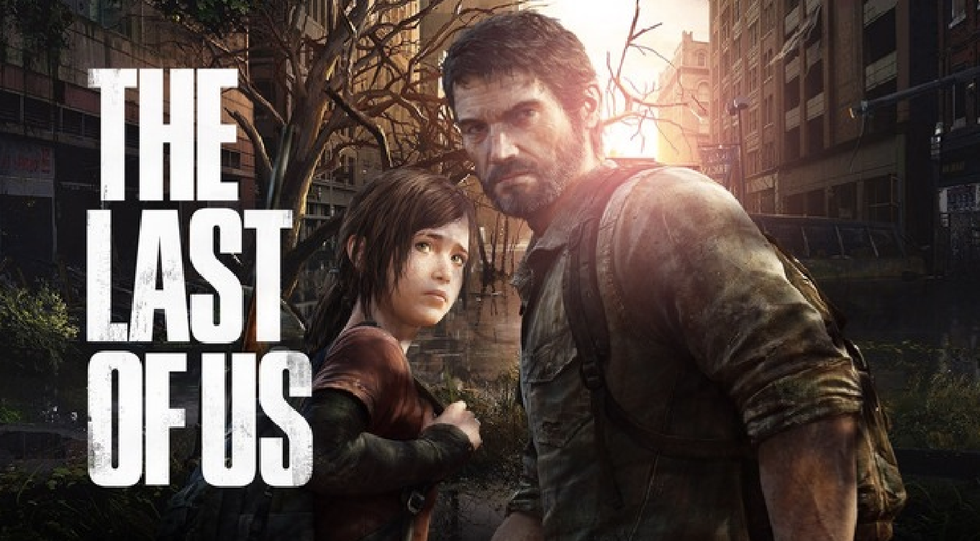Imagine a father carrying his injured daughter away from a scene of chaos, only to realize that his efforts to save her were in vain. What emotions would this scenario inspire? Sorrow? Fear? Anxiety? Whatever emotion it elicits, I promise you that this same story has happened in books, movies, television, and yes, video games. People debate whether or not video games can elicit emotion. My answer is yes, they can. Scientifically, studies have proven that video games stimulate chemicals, such as dopamine, serotonin, Oxycontin and endorphins, which directly link to our emotions (Hall-Stigersts). Personally, I have learned that video games are just a different type of storytelling with the same power as other established forms of media to incite heart-pounding exhilaration, vehement rage and unabashed tears.
When my brother was home from college last summer, we played "The Last of Us," by the developer Naughty Dog. While not categorized strictly in the horror genre, "The Last of Us" combines influences of survival horror gameplay within the narrative framework of a post-apocalypse adventure setting to make a game that is more terrifying than those that specialize in fear. What sets this game apart from its peers is its harrowing tale told through a believable cast of characters, engaging dialogue and subtle environmental storytelling. The combination of these factors and the video game’s trigger of the chemical oxytocin, which “…is essential for bonding,” help us sympathize with fictitious characters to the point that they become almost “real” in our minds (Hall-Stigersts). This explains why my brother and I watched in horror as Joel, the main character, fled with his daughter as chaos broke out around them, only for them to be caught by an officer with orders to kill all survivors. Later, our hearts were pounding when fourteen-year-old Ellie fought off her cannibalistic kidnapper and rapist, who threatened to cut her up into “little pieces.” This is an example of an emotion the games’ creators intended for us to feel.
There are times when we feel emotions that the creators did not intend for us to feel. An example would be the anger of myself and other players towards the ending of the "Mass Effect" trilogy, developed by BioWare. One of the reasons the "Mass Effect" series has been great was its praise for individualizing a player’s experience. Imagine the loyal fans’ distraught when every choice they had made to shape their stories had been nullified in three generic endings that were inconsistent with the buildup of the series. For example, only one of the three choices let me save the main character’s life, but at the cost of killing a race of artificial intelligence that I had spent the past two games supporting. The dissatisfaction for the game went so far as a fan taking the initiative to rewrite the game’s ending in a manuscript of over five hundred pages (Tassi).
Not even my terror from "The Last of Us" or my indignation at "Mass Effect 3" could compare to the emotional impact I had when I played "Brothers: A Tale of Two Sons," developed by Starbreeze Studios. I have never cried harder than at the end of that video game. The game design and the main characters, Naia and Naiee, are meant to strip away barriers until there is nothing left but the shared meaning that every heart can understand. These two brothers search for the Tree of Life to heal their dying father. As there is no understandable dialogue, the story relies on the characters’ actions and expressions to convey their relationship as you control them in the game. This teamwork between the two brothers emphasizes the guilt when one of the brothers dies. As I watched the young Naiee cry over his brother’s lifeless body, I could not help but think of my big brother, Oliver. I needed to hear his voice, to reassure myself that he was okay. Before I could seize the phone, my mom stopped me and said that he was taking his college finals and could not be interrupted. I could not care less and replied that it was a “little sister emergency!”
Throughout the dawn of humankind, our emotions have resonated in the stories we tell. The stories can come in the form of oral and literary classics such as "Beowulf" and "To Kill a Mockingbird," or modern cinema and video games, like "Toy Story" or "The Last of Us." The thread that ties all of these stories together is the power to evoke emotion, and video games are but the newest medium to do so. To say that no video game can elicit emotion is like saying that no one has shed a tear at the end of "Titanic."





















